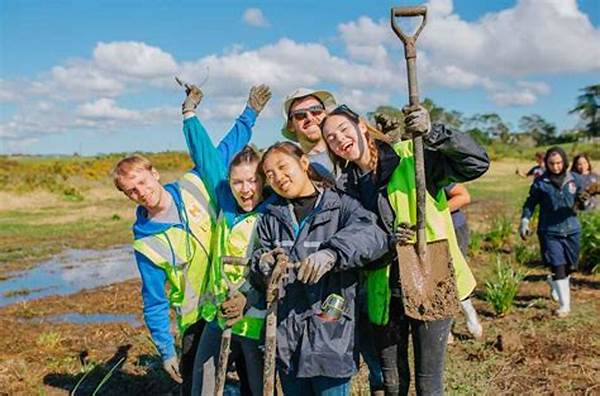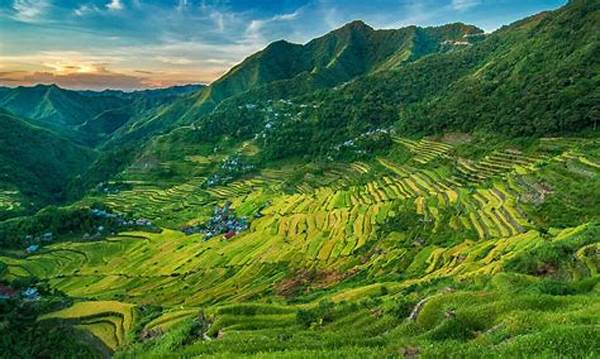Community conservation programs are more than just a term thrown around in environmental circles—they’re a beacon of hope in our otherwise tumultuous relationship with nature. Now, before you scroll down to your next news feed fix, let me take you on a journey that involves pandas, tree planting parties, and neighbors who become overnight eco-heroes. This isn’t your average blog post; it’s your one-way ticket to exploring how simple actions can lead to extraordinary environmental outcomes.
Read More : Scenic Riverside Picnic Areas Among Natural Tourist Attractions In Medan
Not convinced? Picture this: the Earth’s best and brightest minds, including a retired grandma with a passion for crocheting turtle neckwarmers (yes, you read that right), banding together to save our one and only planet. It’s part story, part reality, and majorly impactful. Through community conservation programs, ordinary folks are stepping up to make extraordinary changes. From urban jungles to sleepy towns, these programs are the secret sauce to a sustainable future. Intrigued yet? Thought so.
What Are Community Conservation Programs?
Community conservation programs are initiatives where local communities actively participate in conserving natural resources and wildlife. These initiatives include activities like reforestation, wildlife monitoring, habitat restoration, and sustainable agriculture. Unlike traditional conservation efforts led by governmental bodies or large organizations, these programs emphasize grassroots involvement and empowerment, turning ordinary community members into champions of environmental stewardship.
The beauty of community conservation programs lies in their accessibility and inclusivity. These programs provide opportunities for individuals from all walks of life to engage in meaningful activities that benefit both their local environment and global biodiversity. With workshops, training sessions, and fun-filled events like “Plant and Pizza” days, community members can gain practical knowledge and skills while positively impacting the planet—one sapling at a time.
The Effectiveness of Community Conservation Programs
When it comes to environmental issues, numbers don’t lie. Studies show that community-led conservation efforts can be highly effective. According to a study conducted by the International Union for Conservation of Nature (IUCN), projects involving local communities have higher success rates in terms of achieving conservation goals and maintaining biodiversity compared to top-down approaches. This is because community members have a vested interest in the outcomes—they live there, after all.
Additionally, these programs foster a sense of collective ownership, cultivating a strong connection between people and their natural surroundings. From the Amazon rainforest to the Great Barrier Reef, communities that are directly involved in conservation have seen tremendous progress in preserving their natural heritage while improving their livelihoods. Such empowerment fosters sustainable development and ensures long-term environmental resilience.
The Power of Collective Action
Ever heard of the phrase “Strength in numbers”? It holds true for community conservation programs. By bringing people together, these programs leverage the power of unity to tackle some of the most pressing environmental challenges. Through collaboration, shared resources, and diverse perspectives, communities can create innovative solutions and drive impactful initiatives that would be impossible for individuals to achieve alone.
Take the success story of the Maasai Mara community in Kenya. Through coordinated efforts, local communities have been able to conserve vast tracts of land, protect endangered species, and promote eco-tourism. These initiatives have not only preserved the environment but have also provided economic benefits to the community. The Maasai Mara example showcases how collaborative efforts can turn conservation dreams into reality.
Community Conservation Programs in Action
Let’s zoom in on a few standout examples of community conservation programs in action:
Urban Green Spaces
Cities around the world are teeming with community-driven initiatives to create urban green spaces. From rooftop gardens to neighborhood parks, these efforts provide essential ecological benefits while enhancing the quality of life for residents.
Coastal Cleanup Campaigns
In coastal regions, communities are banding together to tackle marine pollution through organized cleanup efforts. These programs engage volunteers of all ages in removing plastic debris from beaches, preserving marine biodiversity, and raising awareness about ocean conservation.
Read More : Scenic Sunrise Points At Natural Tourism Bandung Mountains This Year
Forest Guardianship
Communities living near forests have taken on the role of guardians, protecting vital ecosystems from deforestation and illegal logging. By implementing sustainable forestry practices and monitoring wildlife populations, these guardians ensure the health and vitality of their forested landscapes.
Why You Should Get Involved
Okay, let’s cut to the chase. Why should you care about community conservation programs? For starters, they offer you the opportunity to contribute to something greater than yourself. Whether you’re a nature enthusiast or someone looking to make a positive impact, participating in these programs allows you to take concrete actions that drive change.
Another reason? You get to meet some incredible people—nature lovers, activists, and maybe even a grandma or two knitting clothes for cold-blooded critters! Not only do you become part of a vibrant community committed to preservation, but you also develop new skills that can help you lead a more sustainable lifestyle.
Goals of Community Conservation Programs
Community conservation programs are designed to achieve several critical objectives:
Getting Involved: Your Call to Action
Community conservation programs are the bridge between passion and action. They equip us with the tools to create a sustainable future. Here’s how you can dive in:
Conclusion
In closing, community conservation programs are the heartbeat of grassroots environmentalism. They embody the values of collaboration, resilience, and determination. With steadfast commitment and collective effort, communities around the globe are charting a course to a more sustainable future. These programs remind us that the power to create change is within each of us, waiting to be unleashed through community collaboration.
Make Your Impact Today
Imagine a world where every community thrives in harmony with nature—a world where conservation is not just a dream but a reality. Together, through community conservation programs, we can make that world possible. Get involved, make a difference, and let your story be part of the thrilling tale of global conservation success.


